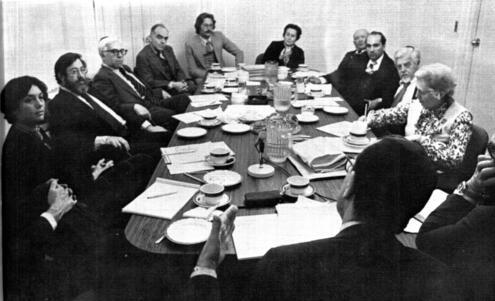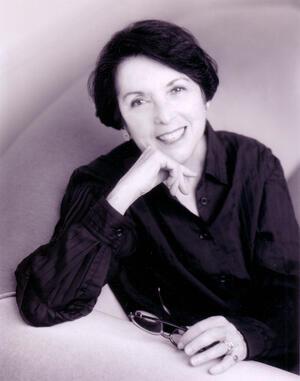Francine Klagsbrun
I was a member of a special commission appointed by the Conservative movement to study the issue of ordaining women as rabbis. We met over the course of a year, between 1977 and 1978. Typical of the times, the 14-member commission consisted of 11 men and only three women: Marian Siner Gordon, an attorney; Rivkah Harris, an Assyriologist; and myself, a writer. The male members included rabbis, scholars, attorneys, and Jewish community leaders.
Rabbi Gerson D. Cohen, then Chancellor of the Jewish Theological Seminary, appointed the interdisciplinary commission in response to growing demands to ordain women as rabbis in the Conservative movement. To be sure, women were already serving as rabbis in the Reform and Reconstructionist movements. Those movements, however, do not accept Jewish law (halacha) as binding, whereas the Conservative movement does. Fierce discussions and debates centered on the question of whether Jewish law would permit women to serve as rabbis and received widespread attention throughout the Jewish community and beyond it.
As the commission delved into the issue, testimony it received from scholars showed that no Jewish legal barriers stood in the way of ordaining women. And public meetings held in many parts of the U.S. showed that the Jewish community was deeply caught up in the subject. In 1979, the commission delivered its report recommending that women be accepted for ordination in the Conservative movement. It remains a landmark document of American Jewry.
Alas, the battle surrounding women’s ordination continued for several years, until, in 1983, the Seminary faculty voted to admit women into rabbinical school, and in 1985, the first female Conservative rabbi – Amy Eilberg – was ordained.
Although the commission did not achieve the immediate goal of having women ordained, it contributed strongly to placing the struggle at the center of Jewish consciousness. On a personal level, I became passionate in the cause of women rabbis, debating, lecturing, and writing about it as often as possible. My passion had included all aspects of Jewish feminism. But serving on the commission that helped change the face – literally – of Jewish religious life in America has been one of the high points of my own life.
Francine Klagsbrun is an author, editor, and columnist, who often writes and lectures on women’s issues. Her column, “Thinking Aloud,” appears monthly in The Jewish Week, and she has contributed articles to such national publications as the New York Times and Newsday. She has written several books, including her most recent, The Fourth Commandment: Remember the Sabbath Day, which was a National Jewish Book Award Finalist. She was also the editor of the best-selling book, Free To Be…You and Me, developed by Marlo Thomas and the Ms. Foundation. Klagbsrun was at the forefront of the effort to have women ordained as rabbis in the Conservative movement, and served on the Commission for the Study of Women in the Rabbinate that deliberated the issue. She is a member of the Jewish Women’s Dialogue of the American Jewish Committee, the Commission for Women’s Equality of the American Jewish Congress, and the Task Force on the Jewish Woman of the UJA-Federation.





When will she be speaking in the New York/Westchester area in the future?